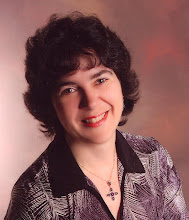The Man Who Forgave Debts

"Forgive us our debts, as we also have forgiven our debtors." Matt. 6:12
Most people have never heard of Edward Tuckerman, Jr. I never had either, until I started researching the founders of the Massachusetts Bible Society for our bicentennial this past year. Artists might know him, since his portrait (pictured here) was painted by Gilbert Stuart, but the only other people who might know him are those who have studied the history of bread.
Edward Tuckerman, Jr. was a baker. He was born Dec. 27, 1740 and spent 50 years as a baker in Boston's south end, taking just a bit of time out to be a second lieutenant of the train of artillery in Boston during the American Revolution. What set Mr. Tuckerman apart as a baker, however, was not his longevity in the field, but the fact that he discovered how to keep biscuits fresh on long ocean voyages.
That discovery meant that his business grew by leaps and bounds, and soon he had over 300 employees and was serving all the ports of New England. He had many notable accomplishments, was a founder of several charitable societies and was even a state senator, but I'm writing about him here at the threshold of the New Year because of what Edward Tuckerman, Jr. did every New Year's Day.
If you owed Mr. Tuckerman money as the books were closed out for the preceding year, you got a call from Mr. Tuckerman. If any delinquent borrower, whether an individual or a business, could show that they did not have the ability to pay, Mr. Tuckerman forgave the debt. Large, small, didn't matter--every dime was forgiven. Not put on a payment plan, not deferred, forgiven. Debtors prisons would not be abolished until the middle of the 19th century, but Mr. Tuckerman took a higher road, perhaps because he followed a higher law.
Edward Tuckerman was an Episcopalian, active in Trinity Church in Boston as was his father before him. He would have known the Lord's Prayer since childhood. As a baker, I have to wonder how often he thought of "Give us this day our daily bread" in relation to his business, and of course the very next line is "forgive us our debts as we forgive our debtors."
While many churches, including my own, substitute "trespasses" or "sins" for "debts," the word in Greek is an economic term. As hard as it is to forgive sins, I think there are more people willing to forgive sins than there are willing to forgive debt. Not so with Mr. Tuckerman, and if it had a negative impact on his business, it was not enough to impact his ability to give generously to the Massachusetts Bible Society, the Charitable Mechanic Association, his church, and others in need.
Edward Tuckerman was able to forgive all his debtors every New Year's Day for two reasons. The first is that he was not deeply in debt himself. He did not need to collect the debts of others to pay off his own debts. He built a business through persistence and creativity over 50 years, not through a capital loan overnight.
The second reason he was able to forgive debts, however, is because he knew that neither the bread he made nor the money that came as a result really belonged to him. He was a steward of God's resources, and knew that the opportunities and inspiration that made him a successful businessman were God's gifts to him. God gifted him so that he might in turn pass God's gifts along to others. So for 50 years, Edward Tuckerman, made the daily bread upon which people depended. And when they could not pay, it became a gift. He did not just pray the Lord's Prayer, he lived it.
Edward Tuckerman, Jr. died on July 17, 1818 and his obituary called him "one of Boston's most worthy, useful, and respectable citizens." I'm sure he had his flaws and, like all of us, I'm sure his life knew sin as well as the good. But I'm also sure that when he met God face to face, it was all forgiven, even as he had forgiven others.
Labels: Anne Robertson, bakers, Boston, bread, debt, Edward Tuckerman Jr., forgiveness, Massachusetts Bible Society

